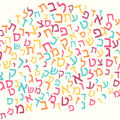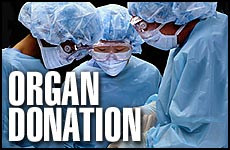 You Know More Hebrew Words Than You Think
You Know More Hebrew Words Than You Think


3 min read
Saving a life is paramount in Jewish law, but organ donation is much more complex than signing a donor card.
The Jewish position on organ donation is as complex as the issue of life and death, because it derives directly from the Jewish perspective on the sanctity of life and the role that our physical existence plays in the advancement of our spiritual selves.
On the one hand, we have a sacred obligation to preserve human life (pikuah nefesh).This is an overriding principle in Jewish law -- so important that almost any other law can be broken for this reason.For example, we can break Shabbat to drive an injured person to the hospital.
We can break Shabbat to drive to the hospital; we can eat pork if we are starving in the desert.
On the other hand, Jewish law prohibits desecration of a dead body (nivul hamet). A dead person's body, since it once housed the holy soul, is to be treated with the utmost respect. Every part of the body must be buried -- which is why you see the heart-wrenching images of religious Jews dutifully going around after a terrorist bombing, scraping up pieces of flesh and blood for burial.
How do we resolve these two principles?
Organ donation is permitted in the case when an organ is needed for a specific, immediate transplant.
In such a case, it is a great mitzvah for a Jew to donate organs to save another person's life.
It is forbidden to simply donate to an "organ bank," where there is no specific, immediate recipient.
Organ donation is not necessarily limited to dead people: Someone who can afford to spare a kidney, for example, may donate one to someone in need.
Yet in consideration of the prohibition against desecrating the body, it is forbidden to simply donate to an "organ bank," where there is no specific, immediate recipient.
Furthermore, it is also forbidden to donate for general medical research or for students to dismember in medical school.
Even when there is a specific, immediate transplant, there is need for caution, because oftentimes in order to obtain organs as fresh as possible, a doctor will remove the organ before the patient is actually "dead" according to Jewish law.
The doctor is therefore effectively killing the patient, which is, of course, forbidden.
The bottom line is that each case is different. A myriad of considerations in halacha must be reviewed. So before going ahead with any procedure, consult with a rabbi well-versed in Talmud and Jewish law. It is clearly not as simple as blankly signing an organ donation card.
Sources:
Rabbi Yechezkel Landau - Noda BeYehudah II, Yoreh Deah 210
Rabbi Moshe Feinstein - Igrot Moshe, Yoreh Deah II, 174
Dayan Weiss - Minchat Yitzchak V, 7
Rabbi Eliezer Waldenberg - Tzitz Eliezer X, 25
Further information:
Institute for Jewish Medical Ethics in San Francisco (800-258-4427)
"Judaism and Healing" by Rabbi J. David Bleich (Ktav Publishing 1981)
